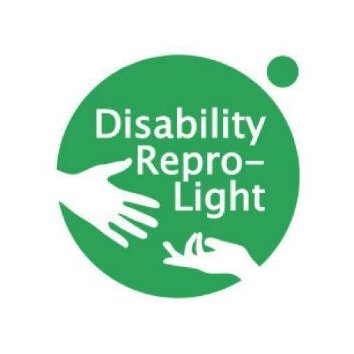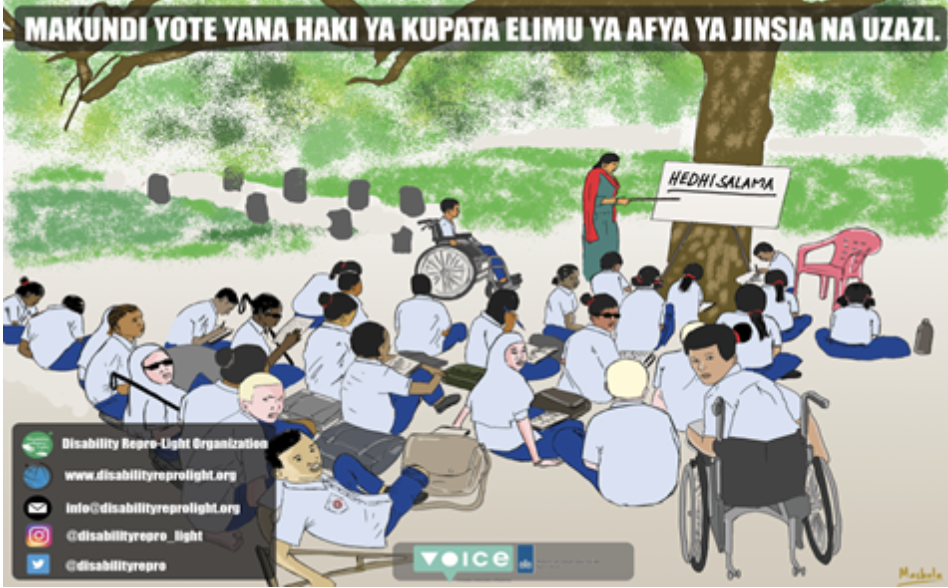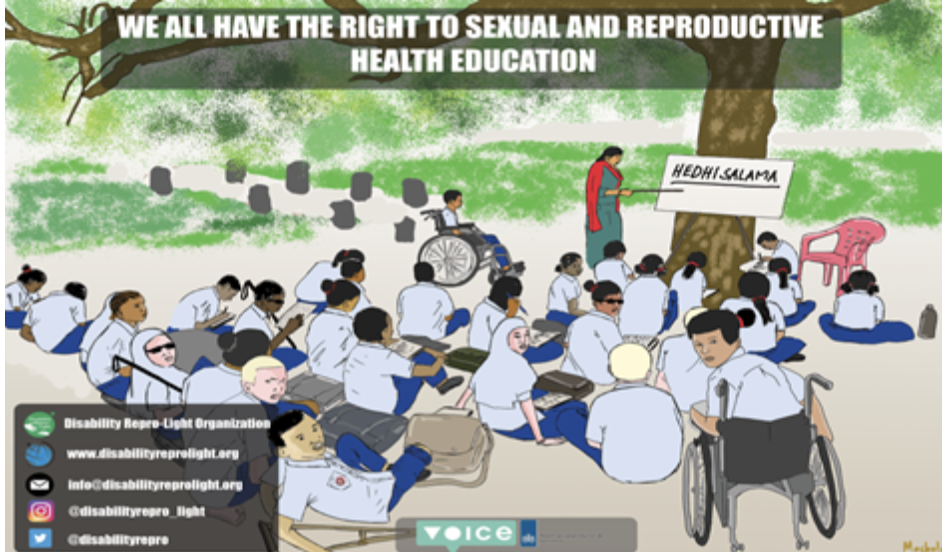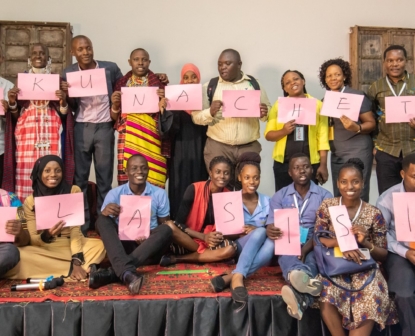Project
Repro-HERI project
-
Amount Funded
9,996 EUROProject Duration
01 Apr 2020 - 31 Mar 2021 -
-
Lead organisation
-
Disability Repro-Light is an organisation that focuses on enabling a firm ground on sexual and reproductive health and rights to adolescents, youth and women with disabilities.
People with disabilities have the same sexual and reproductive health (SRH) needs as other members of the population. However, they often face barriers in accessing both information and services related to SRH. This barrier leaves them vulnerable to gender-based violence, unintended pregnancies, sexual violence and sexually transmitted disease.
Its goal is to enhance a platform which promotes adolescents; youths and women with disabilities can be equipped and enjoy their sexual and reproductive rights.
To sustain an effective, responsive and well-managed ground to end reproductive health and education bias, sexual and physical violence experienced by adolescents, youths and women with disabilities through empowering their sexual and reproductive rights.
-
Organisation
Disability Repro-Light is an organisation that focuses on enabling a firm ground on sexual and reproductive health and rights to adolescents, youth and women with disabilities.
People with disabilities have the same sexual and reproductive health (SRH) needs as other members of the population. However, they often face barriers in accessing both information and services related to SRH. This barrier leaves them vulnerable to gender-based violence, unintended pregnancies, sexual violence and sexually transmitted disease.
Its goal is to enhance a platform which promotes adolescents; youths and women with disabilities can be equipped and enjoy their sexual and reproductive rights.
To sustain an effective, responsive and well-managed ground to end reproductive health and education bias, sexual and physical violence experienced by adolescents, youths and women with disabilities through empowering their sexual and reproductive rights.
-
Project
The REPRO-HERI project is improving sexual and reproductive health status and creating a ground to advocate for such issues while involving young people with disabilities in Tanzania. The acronym HERI is short for Health Equality and Rights Initiative. This project uses an edutainment approach for young people with disabilities as they are grouped in clubs (HERI-clubs) to manage the increased demand for sexual and reproductive health and rights information and freedom of speech to them and later generate an impact of transformative sexual and reproductive health and rights education for young persons with disabilities in primary schools, secondary schools and universities.
The edutainment approach involves creative and refreshing means to learn SRHR such as SRHR related games and Repro-HERI puzzles, drama and poem singing. HERI discussion talks are used to facilitate dialogues in formulated Campus HERI Clubs as a safe learning space for adolescent and youth students with disabilities.
Furthermore, the project is enabling an environment for sexual and reproductive health and rights for people with disabilities. This is done by training gatekeepers on sexual and reproductive health. These are community gatekeepers; religious, clan and local government leaders, parents or guardians of people with disabilities and special education teachers who receive sexual and reproductive health and rights training and manual leaflets. The training mainly focuses on the rights of adolescents, youth women and girls with disabilities towards SRH services regardless of social and cultural barriers and creating a conducive environment.
-
-
The REPRO-HERI project is improving sexual and reproductive health status and creating a ground to advocate for such issues while involving young people with disabilities in Tanzania. The acronym HERI is short for Health Equality and Rights Initiative. This project uses an edutainment approach for young people with disabilities as they are grouped in clubs (HERI-clubs) to manage the increased demand for sexual and reproductive health and rights information and freedom of speech to them and later generate an impact of transformative sexual and reproductive health and rights education for young persons with disabilities in primary schools, secondary schools and universities.
The edutainment approach involves creative and refreshing means to learn SRHR such as SRHR related games and Repro-HERI puzzles, drama and poem singing. HERI discussion talks are used to facilitate dialogues in formulated Campus HERI Clubs as a safe learning space for adolescent and youth students with disabilities.
Furthermore, the project is enabling an environment for sexual and reproductive health and rights for people with disabilities. This is done by training gatekeepers on sexual and reproductive health. These are community gatekeepers; religious, clan and local government leaders, parents or guardians of people with disabilities and special education teachers who receive sexual and reproductive health and rights training and manual leaflets. The training mainly focuses on the rights of adolescents, youth women and girls with disabilities towards SRH services regardless of social and cultural barriers and creating a conducive environment.
-
DRLO organised a gathering of 140 students from Uhuru Mchanganyiko Primary School (40), Benjamin William Mkapa Secondary School (40), and Jangwani Secondary School (60), as well as ten trainers who are students with disabilities from The University of Dar es Salaam and The Institute of Social Work. The 140 students were trained in a wide array of subjects, including sexual and reproductive health, gender equality, entrepreneurship skills, employability skills, ethical leadership, and self-awareness. The training provided the students with the opportunity to ask questions and get the necessary resources that they would need to equip them with more knowledge (including the Repro-HERI Storybooks).
The Repro-HERI Storybooks produced a drafted manuscript and submitted it to the Public Library of Science (PLOS One). In addition, the pre-print was submitted to the med-archive (MedRxiv) archive in the review process for publication. The objective of the manuscript was to contribute to the scientific community’s existing knowledge on Sexual Reproductive Health and Rights (SRHR) for people with disabilities.
Produced 30 educational posters for public awareness and to create conversations around the importance of full inclusive SRHR (At schools – Uhuru Mchanganyiko Primary School, Benjamin William Mkapa Secondary School, Jangwani Secondary School, Institute of Social Work, University of Dar es Salaam, Bus Stands – Ilala, Mbagala, and Kigamboni) both in English and Swahili.

The project also helped create leadership structures in Repro-HERI Clubs, consisting of four club chairpersons, four club secretaries, one club matron, one club patron, and 130 club members. The expected outcome of this was to generate effective and sustainable solutions in addressing the gaps that exist in SRHR among young people with disabilities in Tanzania.
DRLO believe in their engagement in the sexual and reproductive health and rights of persons with disabilities and highlighting one of the most neglected areas that need to be addressed in Tanzania. DRLO looking forward to continuing their project to keep on emphasising the values of Voice of inclusion and leaving no one behind.

- News






